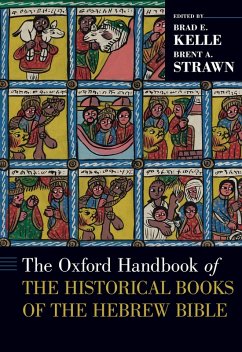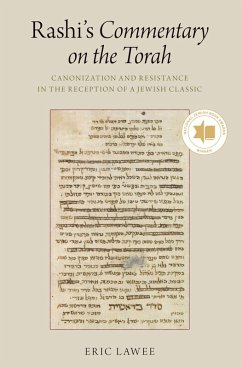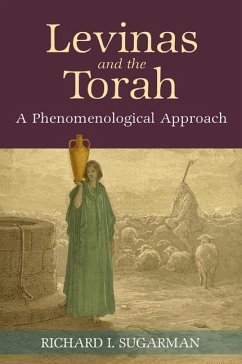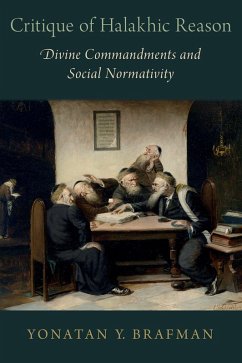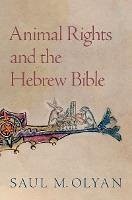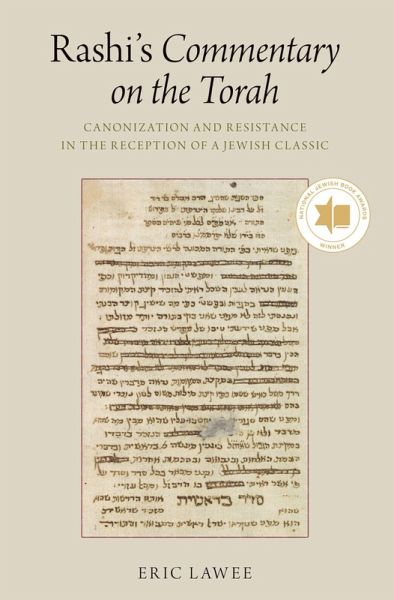
Rashi's Commentary on the Torah (eBook, ePUB)
Canonization and Resistance in the Reception of a Jewish Classic
Versandkostenfrei!
Sofort per Download lieferbar
14,95 €
inkl. MwSt.
Weitere Ausgaben:

PAYBACK Punkte
7 °P sammeln!
Winner of the Jewish Book Council Nahum M. Sarna Memorial Award in Scholarship This book explores the reception history of the most important Jewish Bible commentary ever composed, the Commentary on the Torah of Rashi (Shlomo Yitzhaki; 1040-1105). Though the Commentary has benefited from enormous scholarly attention, analysis of diverse reactions to it has been surprisingly scant. Viewing its path to preeminence through a diverse array of religious, intellectual, literary, and sociocultural lenses, Eric Lawee focuses on processes of the Commentary's canonization and on a hitherto unexamined--a...
Winner of the Jewish Book Council Nahum M. Sarna Memorial Award in Scholarship This book explores the reception history of the most important Jewish Bible commentary ever composed, the Commentary on the Torah of Rashi (Shlomo Yitzhaki; 1040-1105). Though the Commentary has benefited from enormous scholarly attention, analysis of diverse reactions to it has been surprisingly scant. Viewing its path to preeminence through a diverse array of religious, intellectual, literary, and sociocultural lenses, Eric Lawee focuses on processes of the Commentary's canonization and on a hitherto unexamined--and wholly unexpected--feature of its reception: critical, and at times astonishingly harsh, resistance to it. Lawee shows how and why, despite such resistance, Rashi's interpretation of the Torah became an exegetical classic, a staple in the curriculum, a source of shared religious vocabulary for Jews across time and place, and a foundational text that shaped the Jewish nation's collective identity. The book takes as its larger integrating perspective processes of canonicity as they shape how traditions flourish, disintegrate, or evolve. Rashi's scriptural magnum opus, the foremost work of Franco-German (Ashkenazic) biblical scholarship, faced stiff competition for canonical supremacy in the form of rationalist reconfigurations of Judaism as they developed in Mediterranean seats of learning. It nevertheless emerged triumphant in an intense battle for Judaism's future that unfolded in late medieval and early modern times. Investigation of the reception of the Commentary throws light on issues in Jewish scholarship and spirituality that continue to stir reflection, and even passionate debate, in the Jewish world today.
Dieser Download kann aus rechtlichen Gründen nur mit Rechnungsadresse in A, B, BG, CY, CZ, D, DK, EW, E, FIN, F, GR, HR, H, IRL, I, LT, L, LR, M, NL, PL, P, R, S, SLO, SK ausgeliefert werden.




